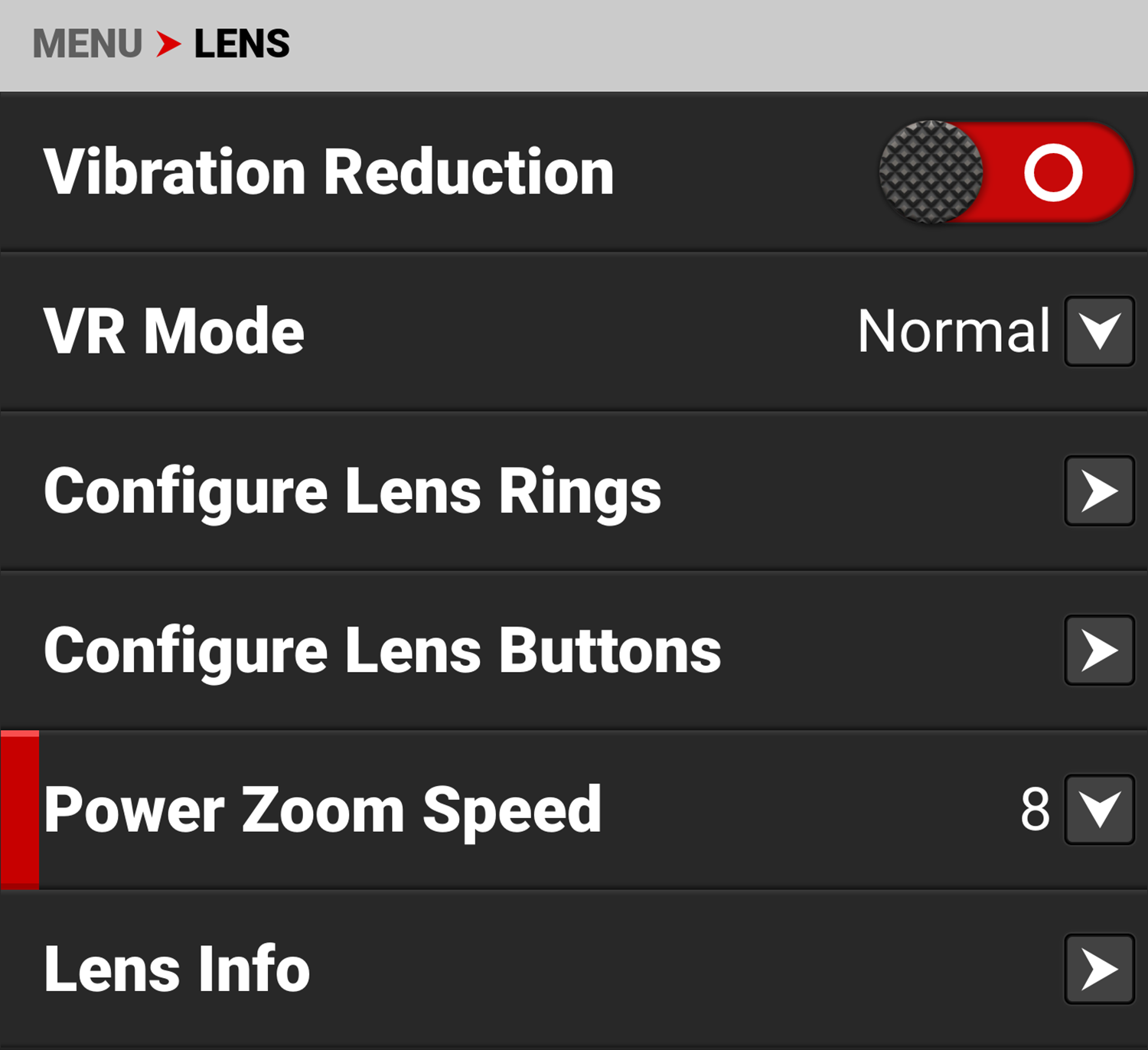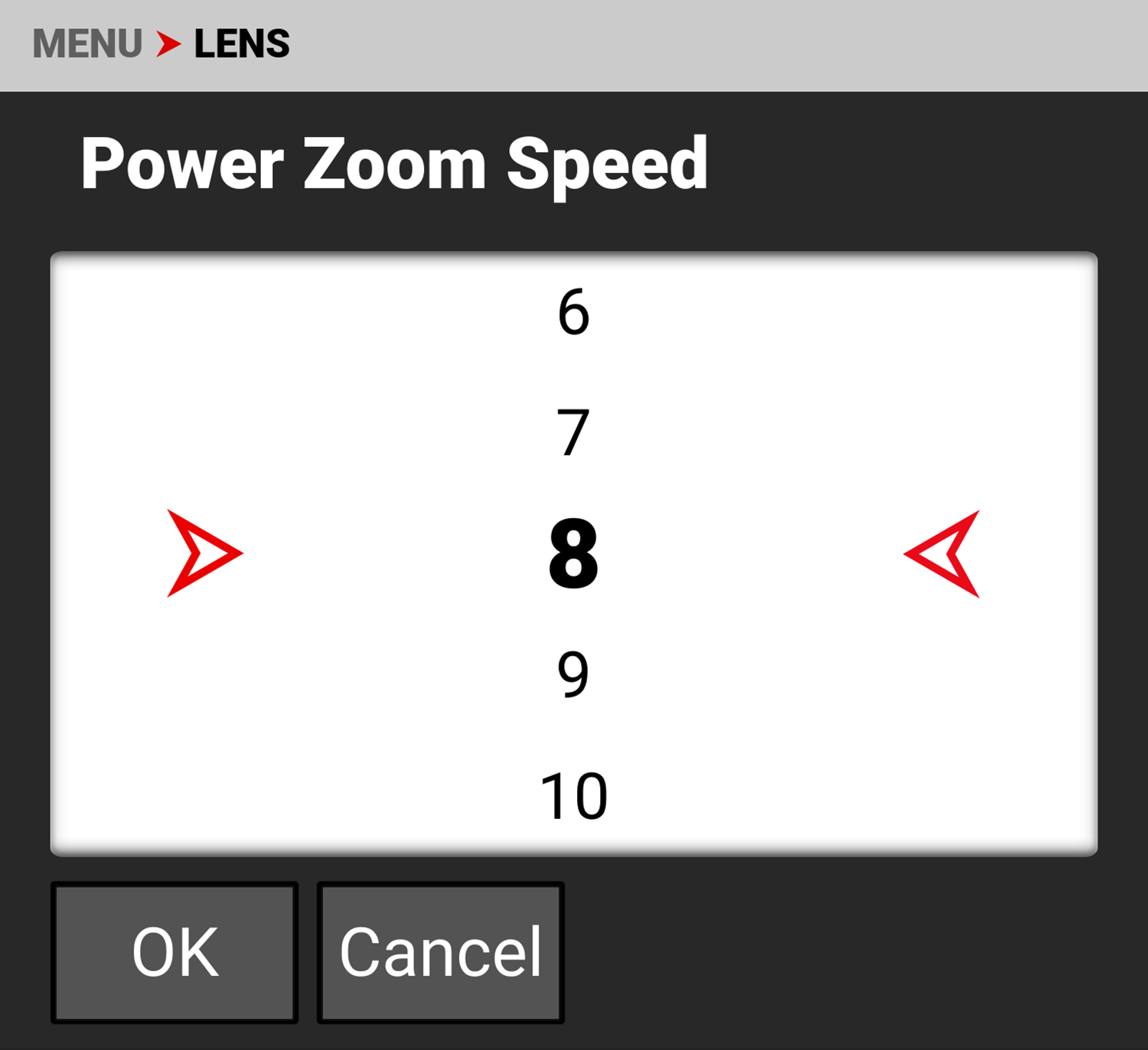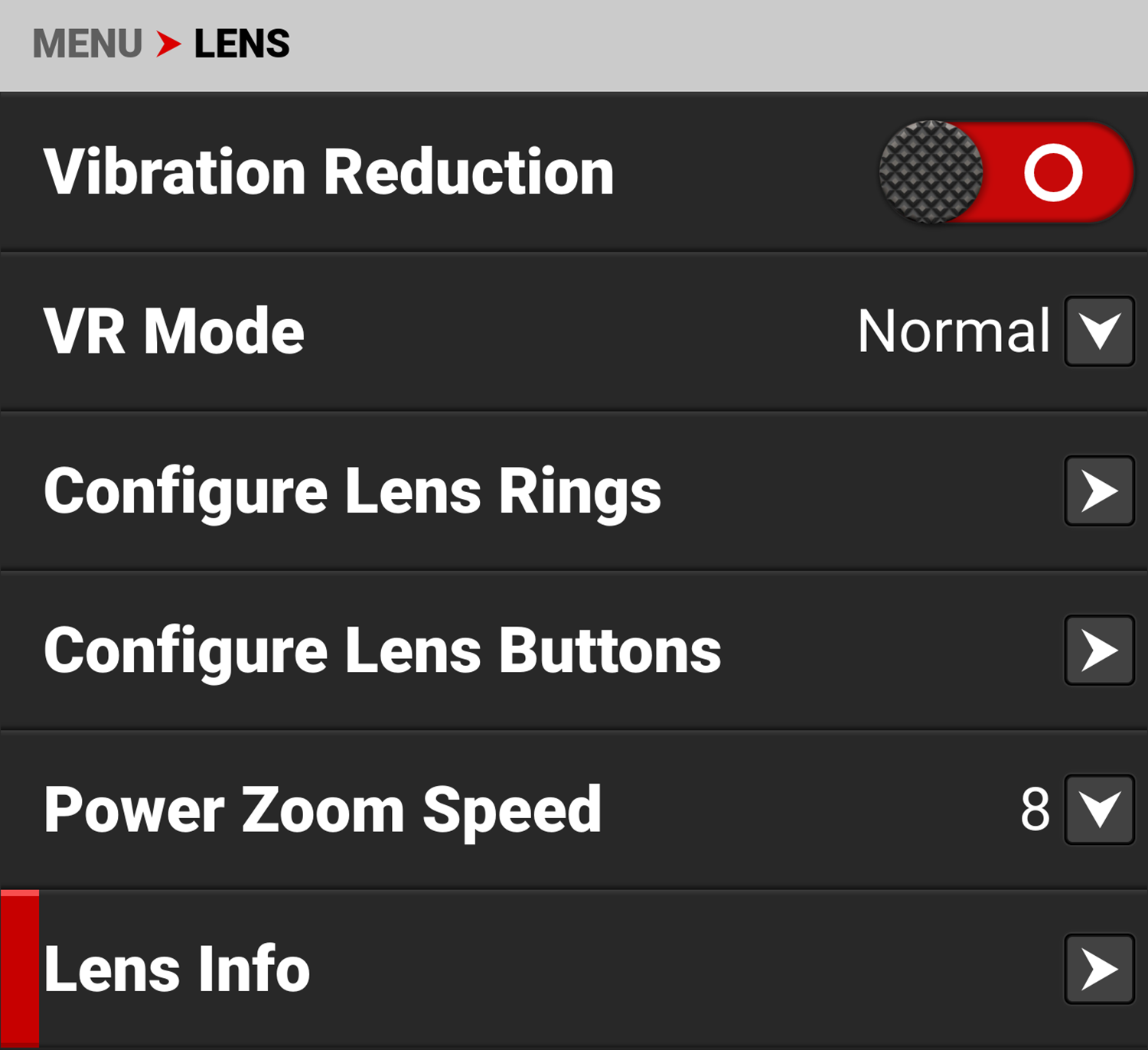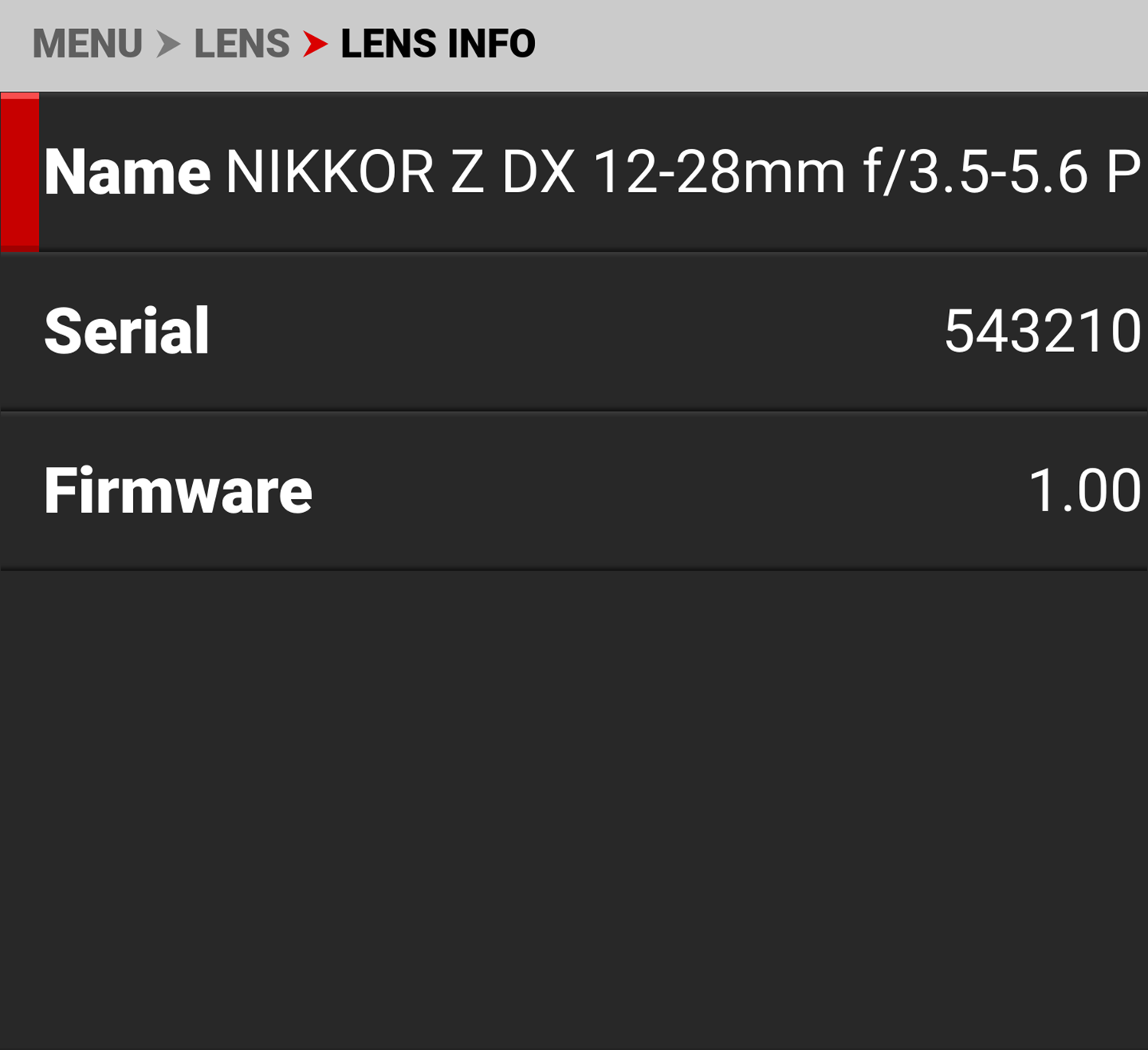Lens Menu (Z Mount)
The Lens menu contains the camera lens settings for the Z Mount, PL, or adapted lenses you have attached.
From the camera LCD menu, navigate to Lens and press SEL:
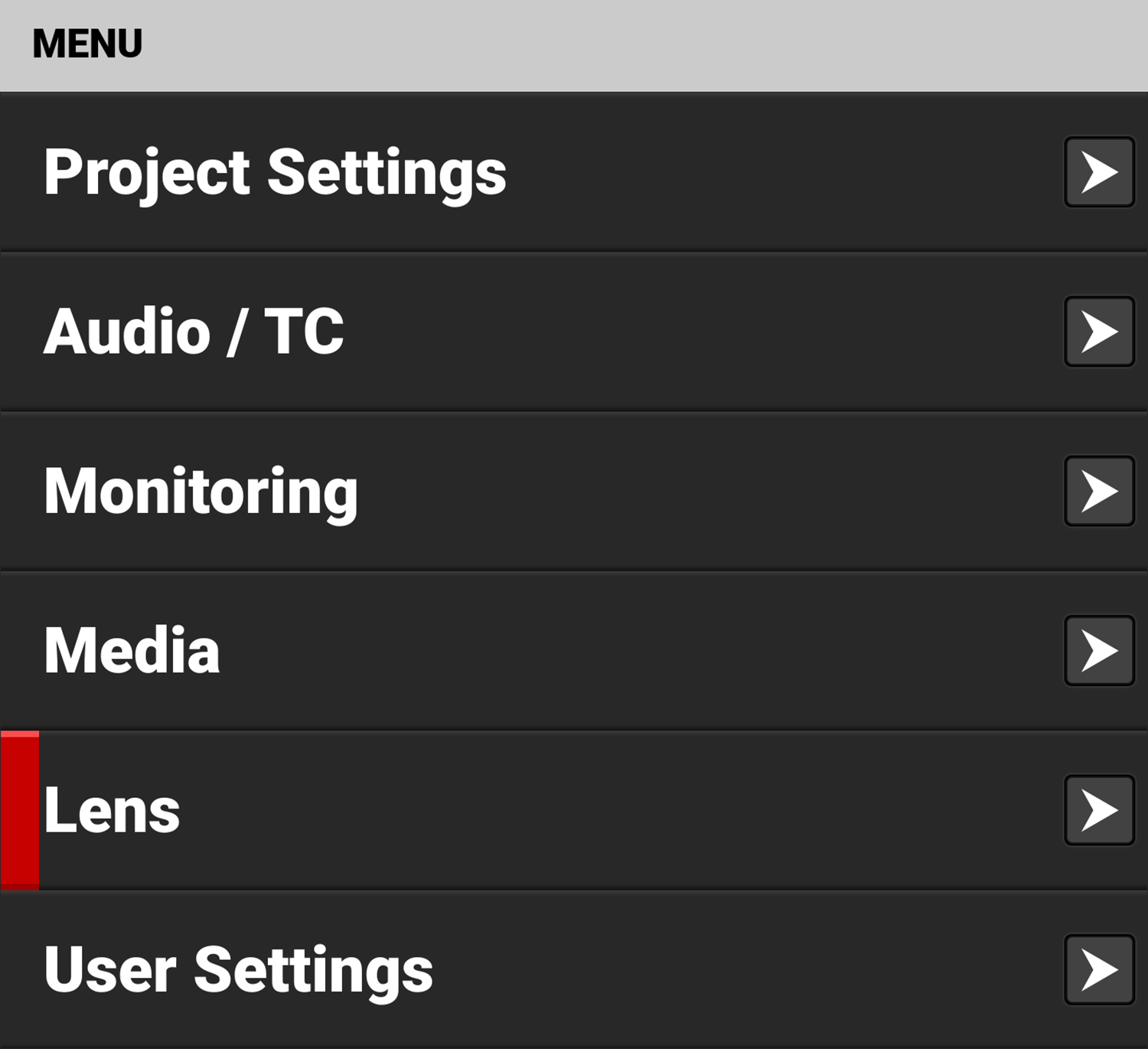
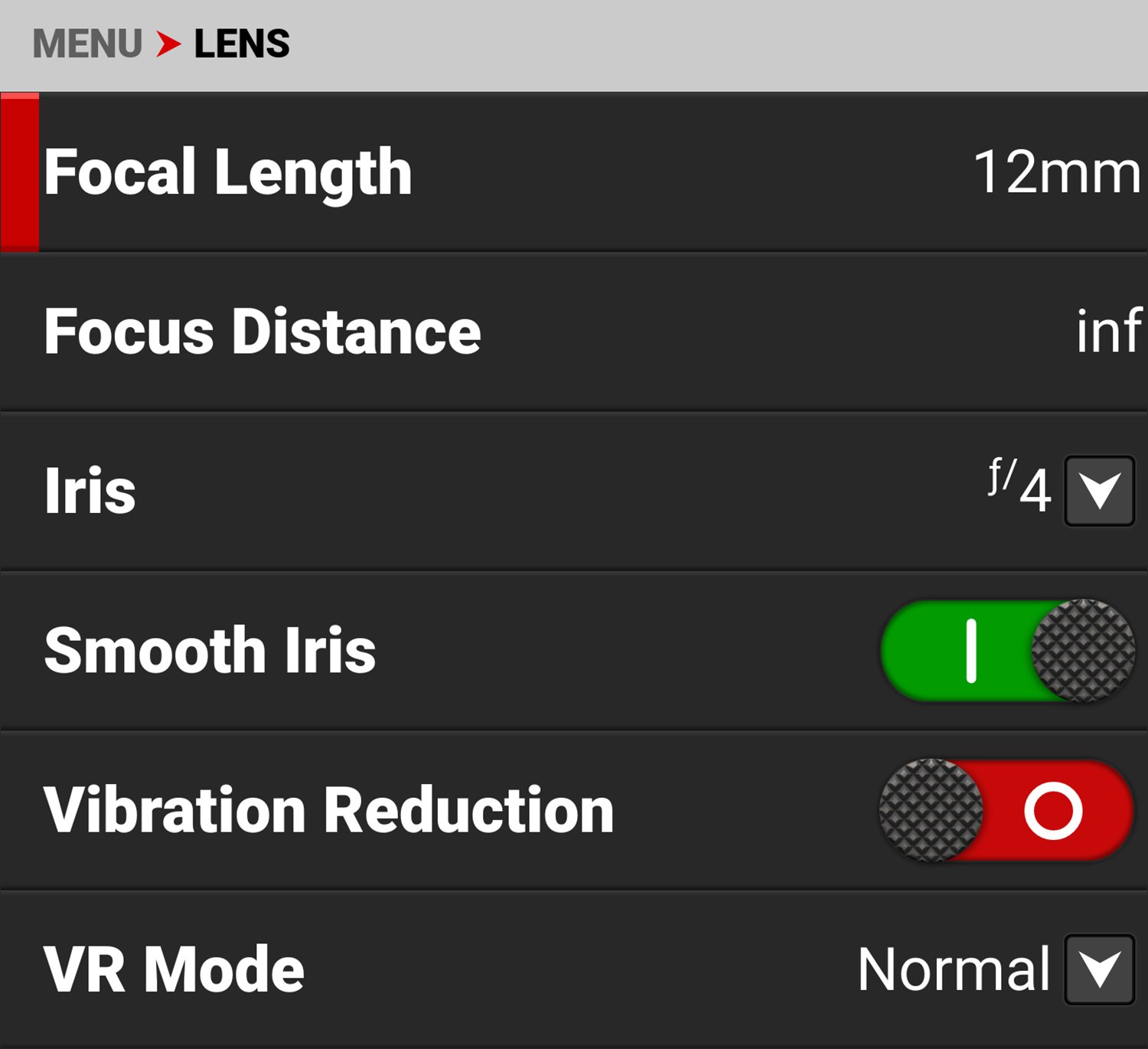
Use the System Settings menu to configure the camera system settings:
Iris
Use the Iris menu to select the camera lens f-stop for Z Mount lenses and to view the t-stop for PL lenses.
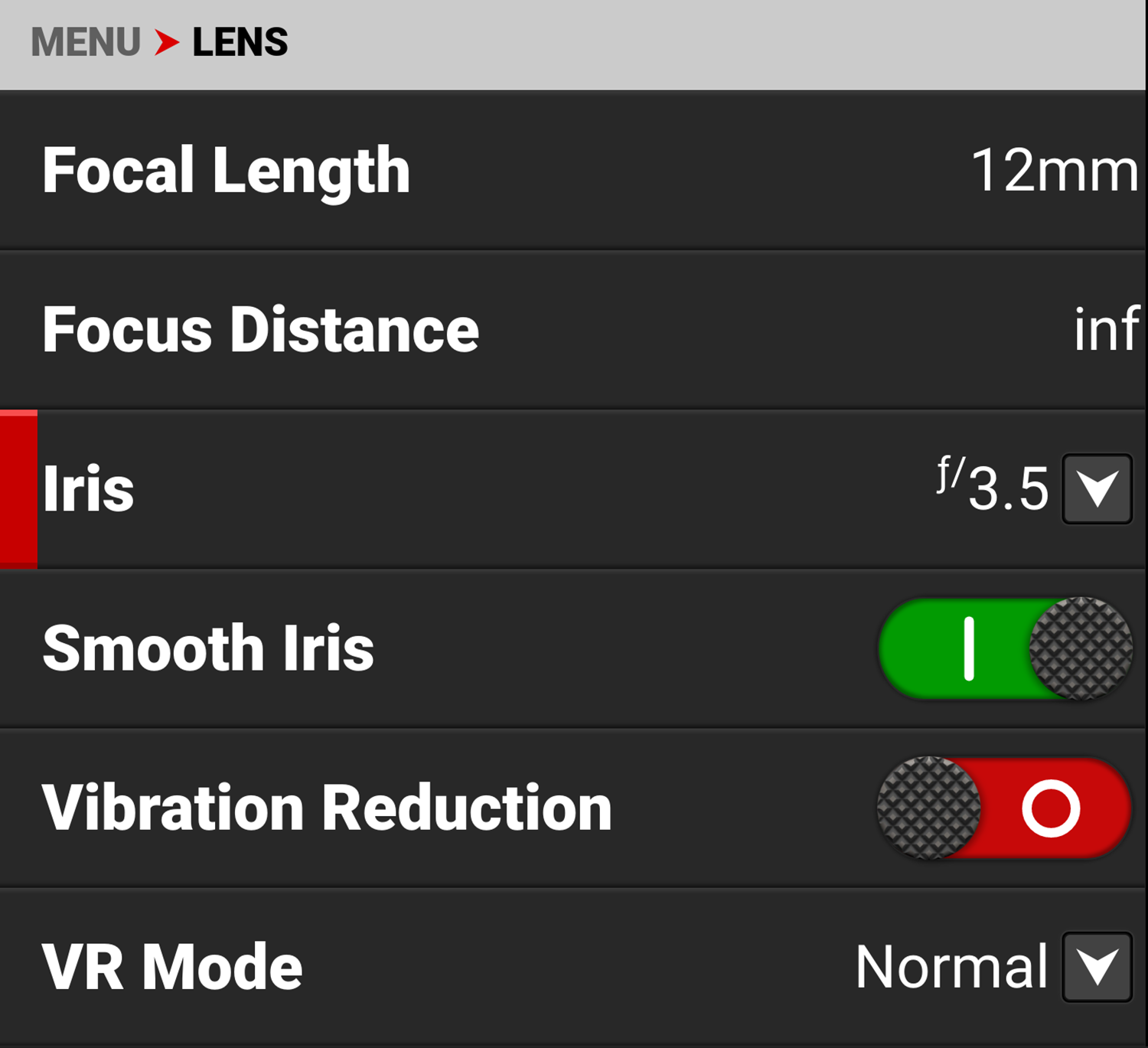
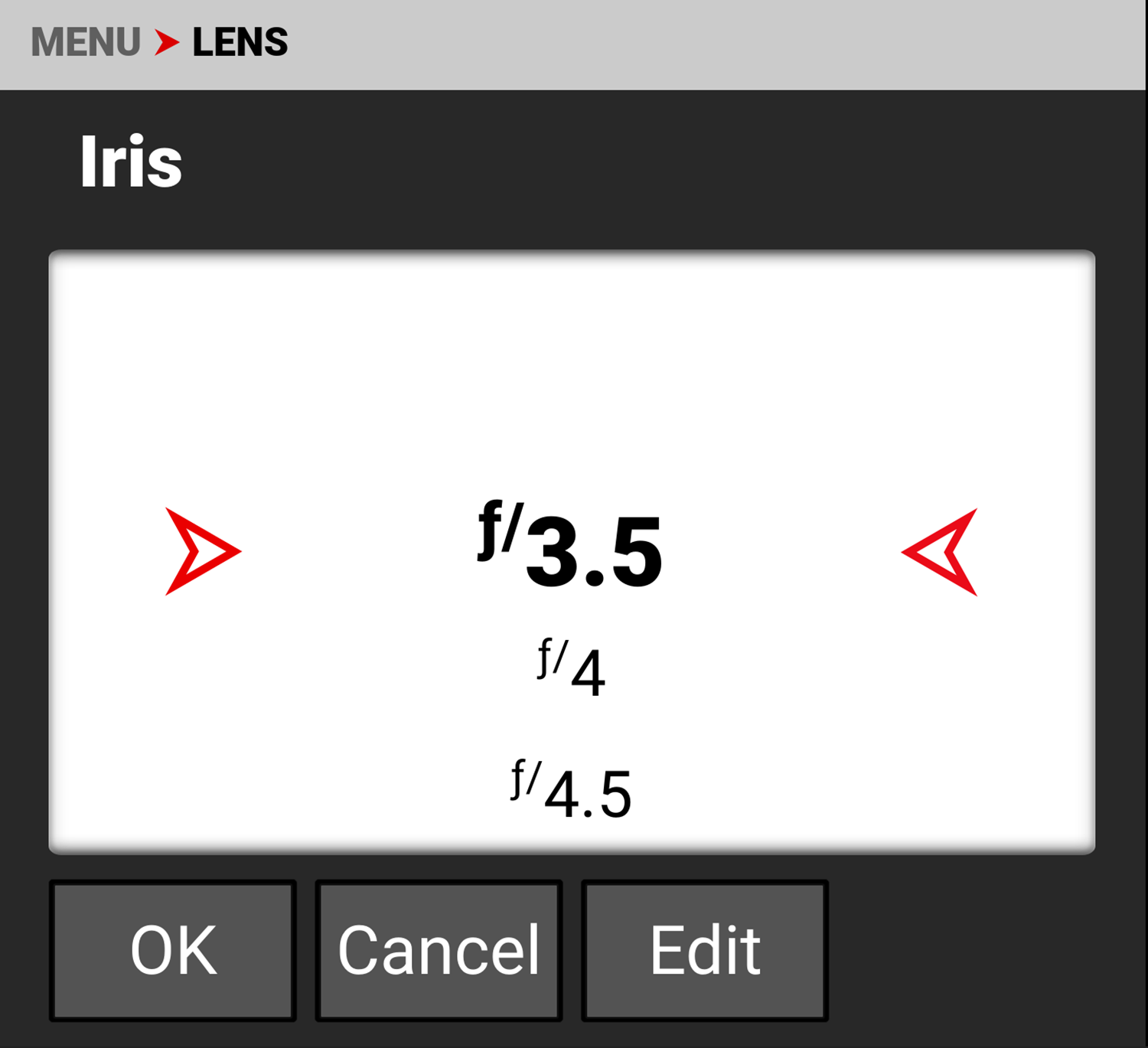
Press the button below Edit to open the keypad and enter the stop value manually.
Smooth Iris
Use Smooth Iris to create smooth and gradual exposure transitions with Z Mount lenses. Disable Smooth Iris for instant iris changes.
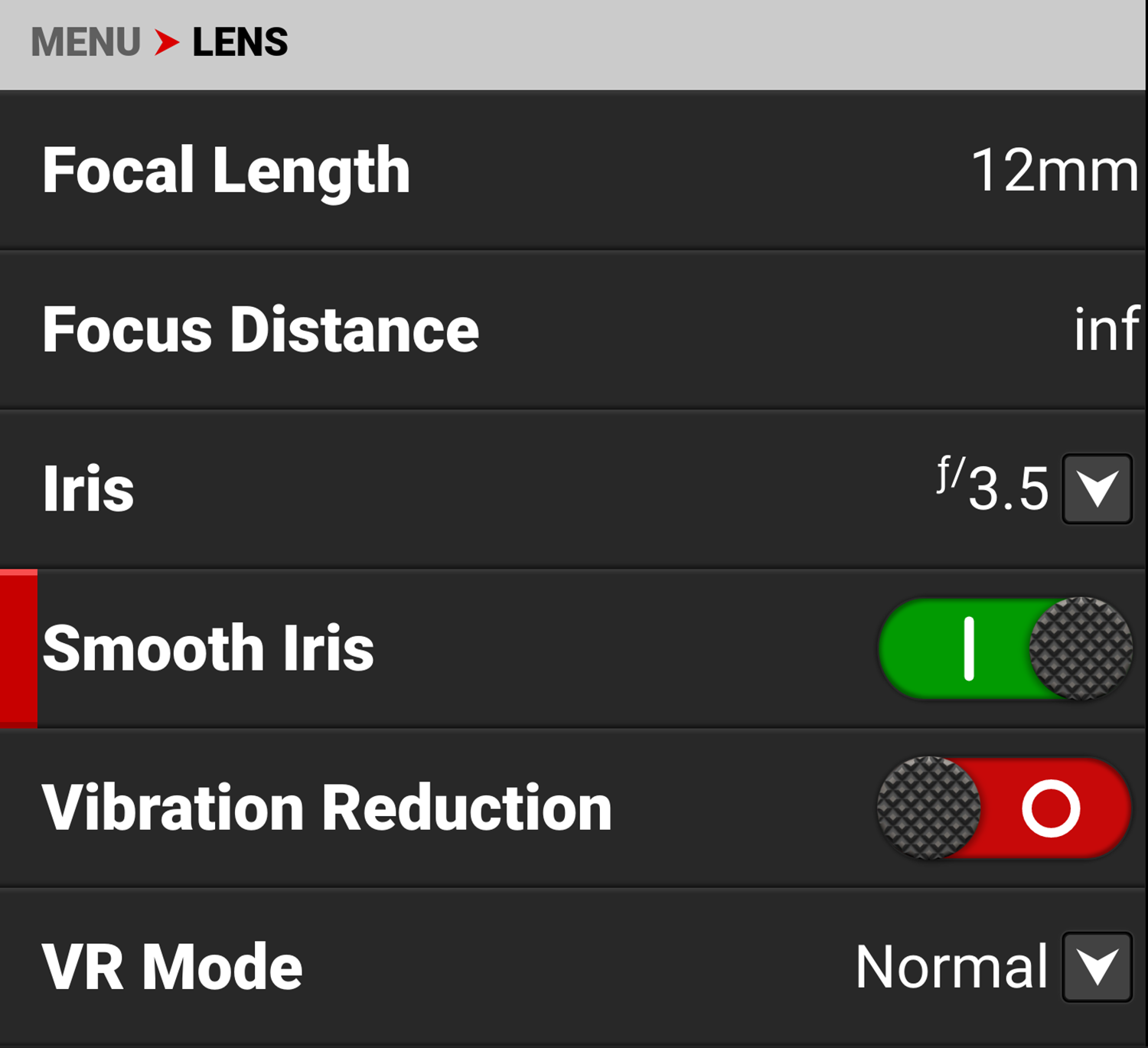
Vibration Reduction
Use Vibration Reduction to enable or disable the Z Mount lens Vibration Reduction feature.
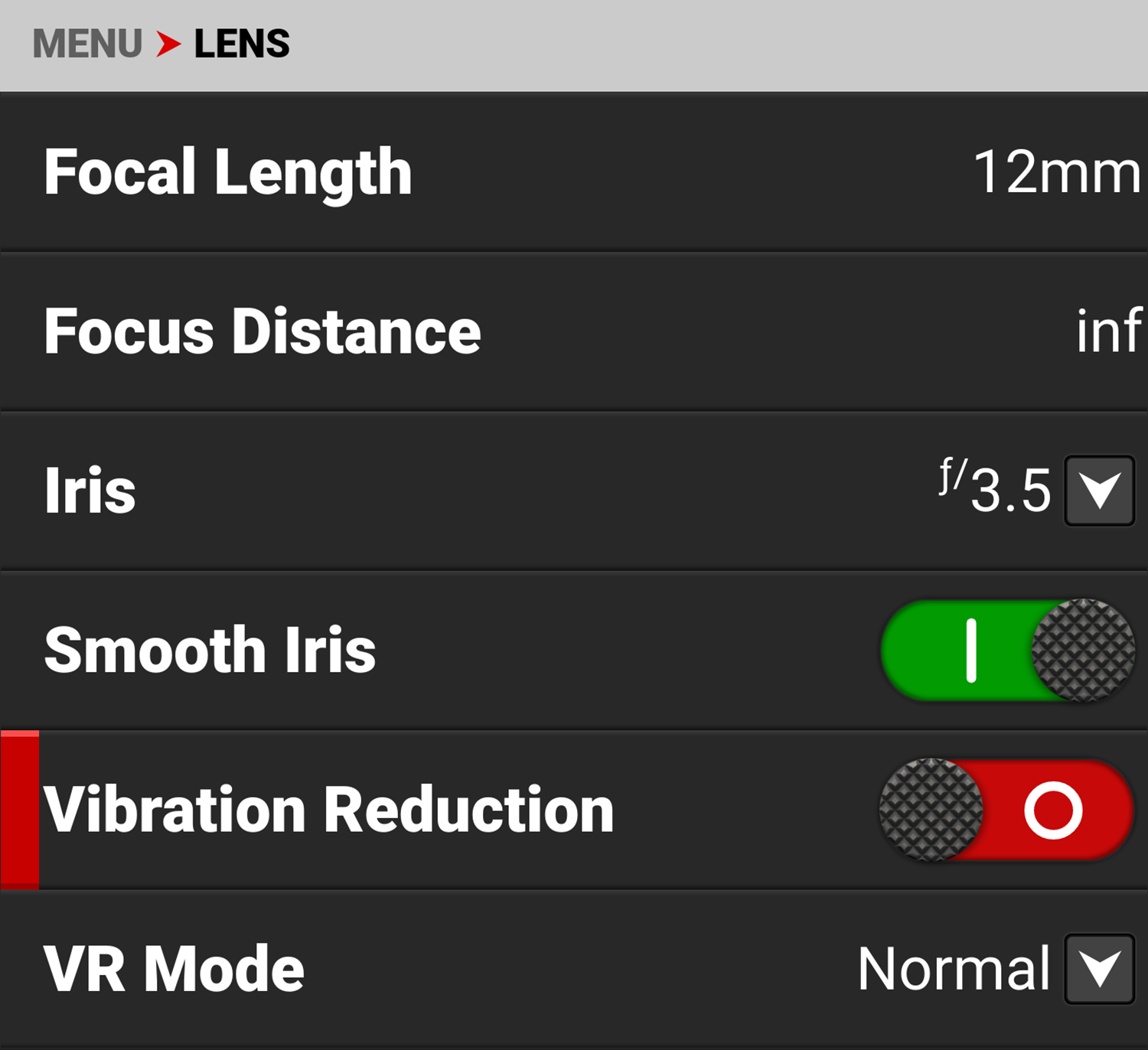
VR Mode
Use VR Mode to select the vibration reduction mode for the Z Mount lens, when enabled.
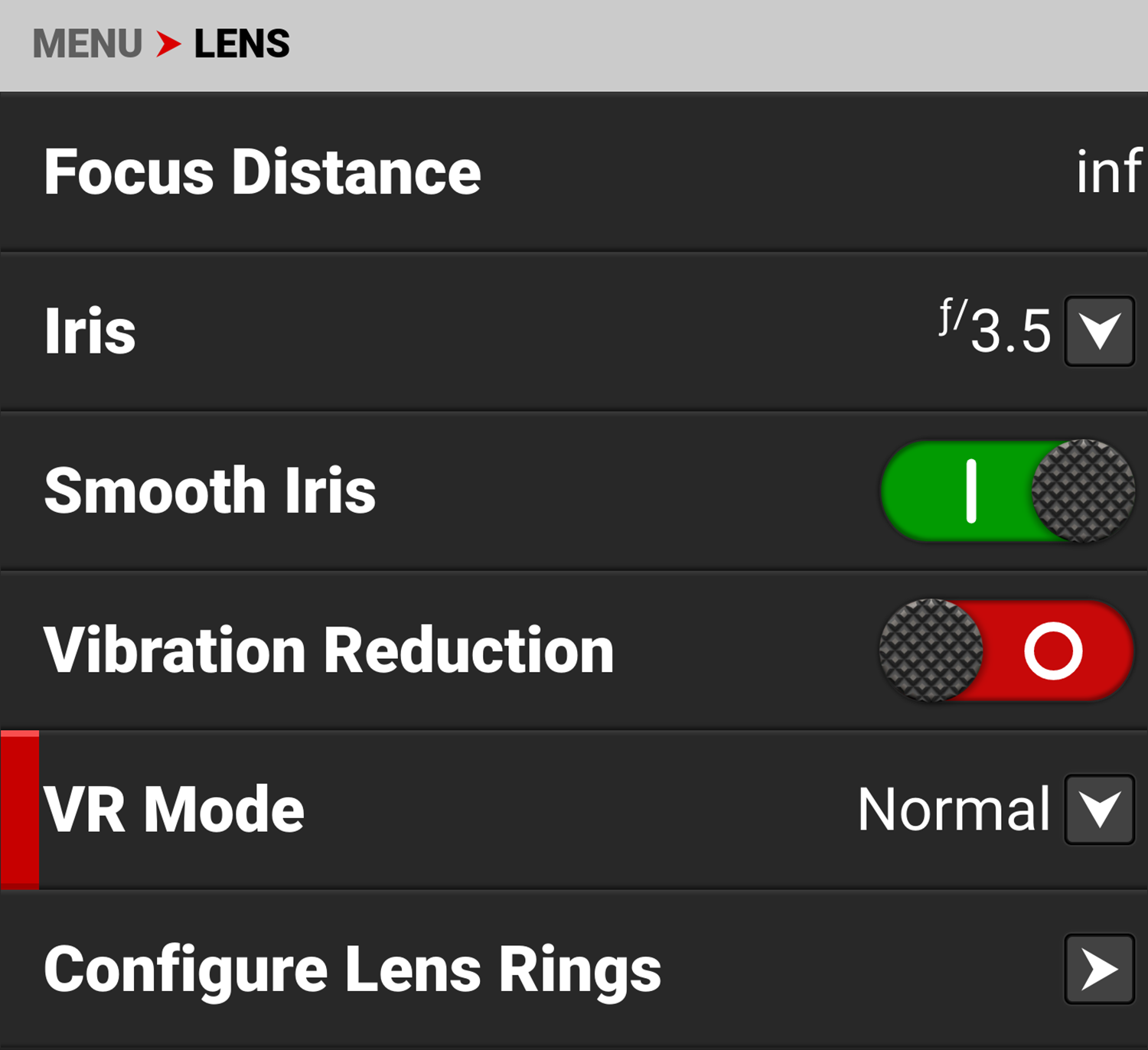
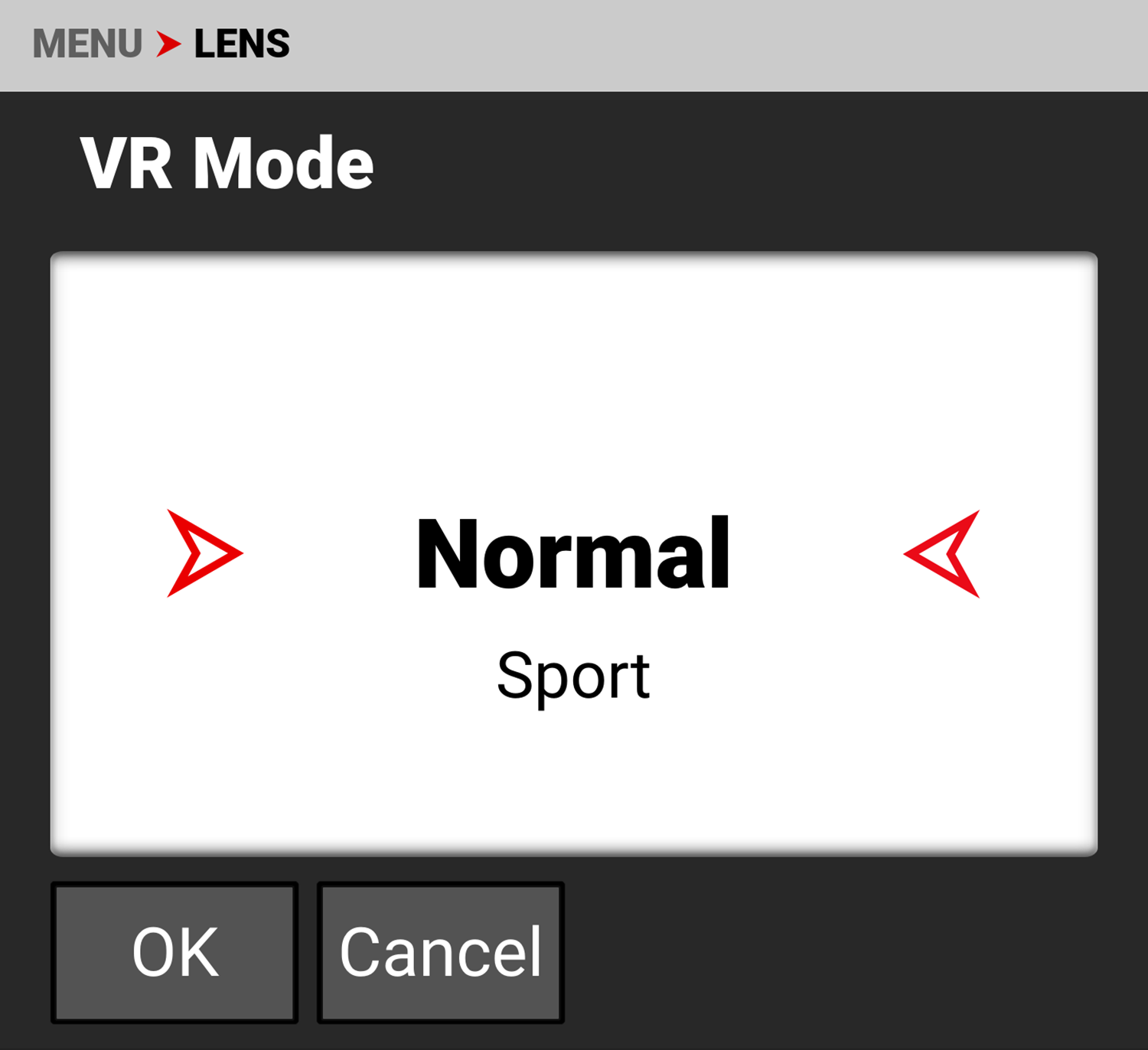
The modes you can select include Normal (default) and Sport.
Configure Lens Rings
Use Configure Lens Rings to manage the Z Mount lens ring behavior. Single-ring lenses will display different options than two-ring lenses.
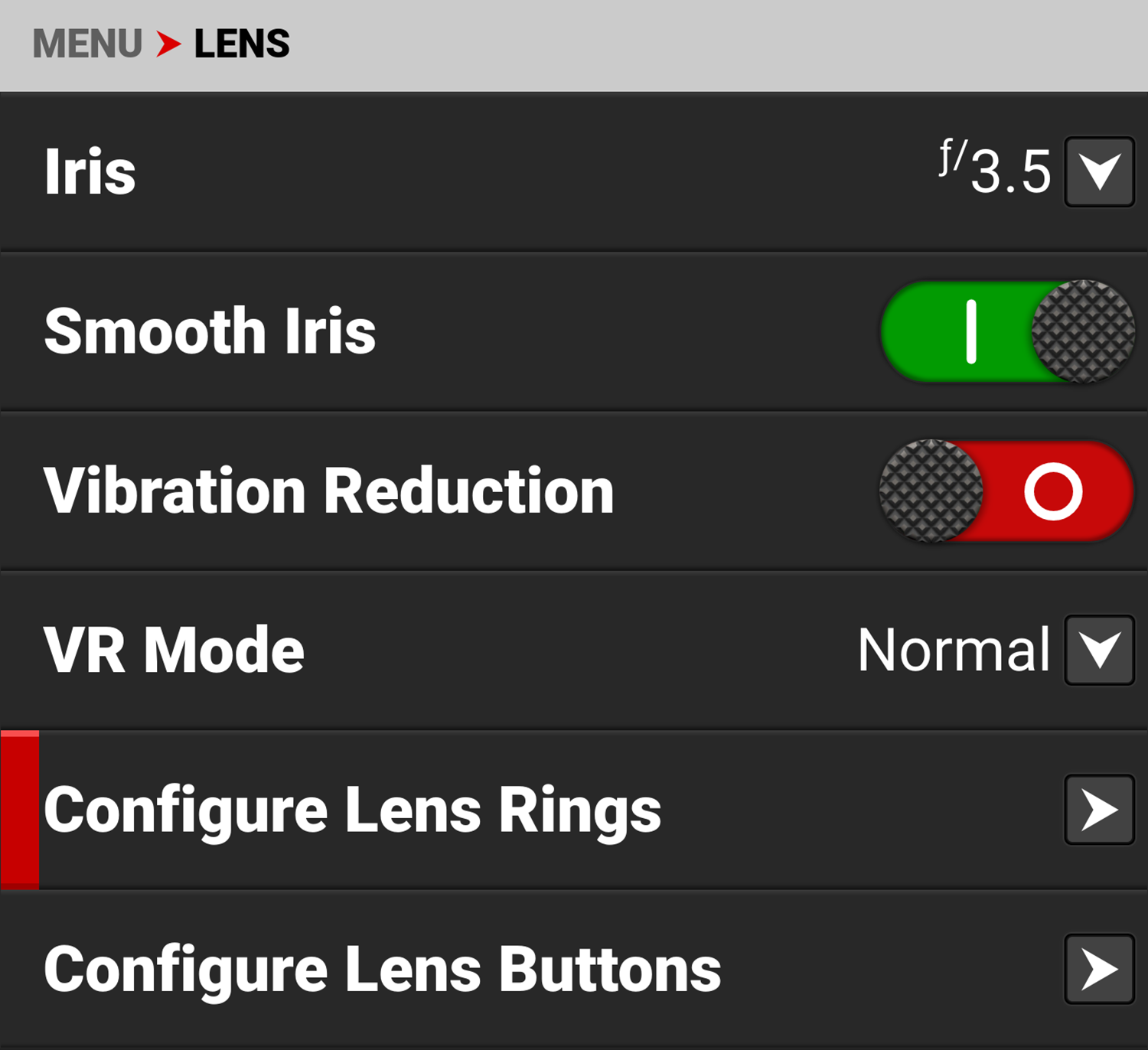
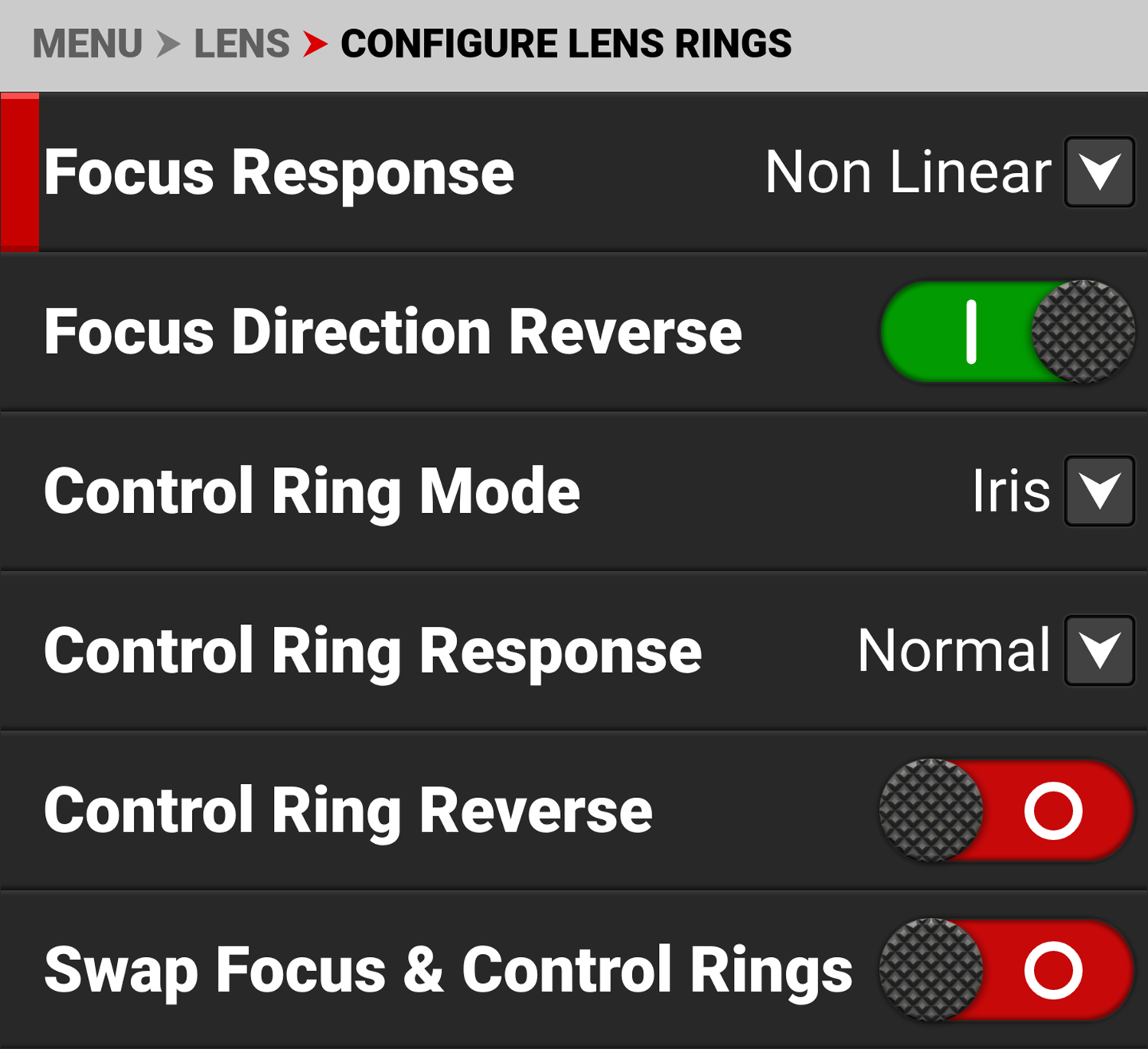
The Configure Lens Rings settings that display depend on the attached lens and they can include:
|
Item |
Details |
|---|---|
|
Select the focus response |
|
|
Enable / disable Focus Direction Reverse |
|
|
Select the Control Ring mode |
|
|
Select the Control Ring response |
|
|
Enable / disable the Control Ring direction reverse |
|
|
Swap the Focus Ring with the Control Ring (two-rings) |
|
|
Select the Zoom Ring response |
|
|
Enable / disable Zoom Ring Reverse |
Focus Response
Use Focus Response to select how turning the Focus Ring changes focus distance. Non-Linear response uses the speed that the ring is turned to determine the distance the focus moves. Linear responses (30˚-720˚) express how many degrees of rotation are required to move the focus distance from the minimum to the maximum, and does not rely on speed.

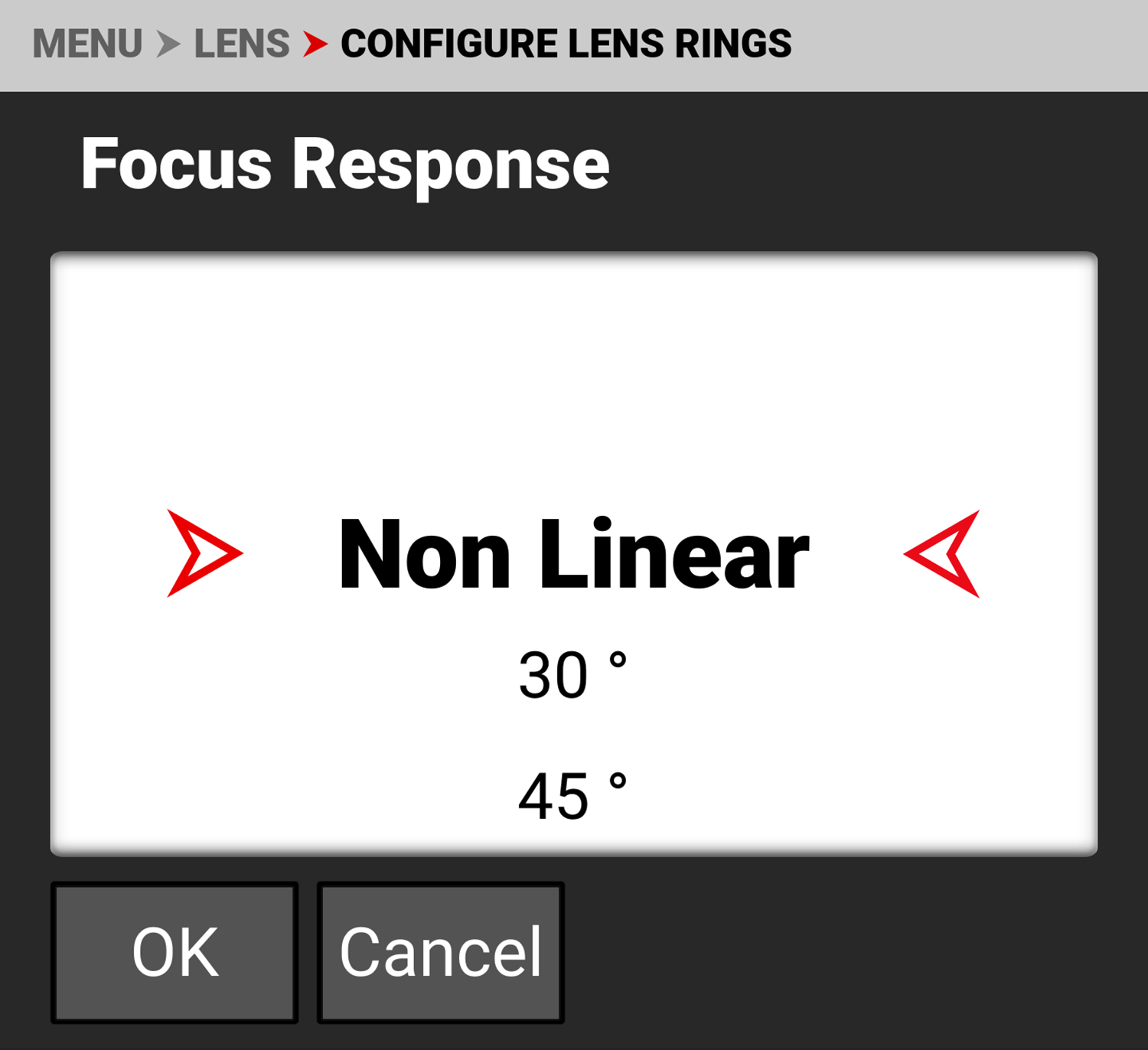
The Focus Response settings include Non Linear (default), 30°, 45°, 60°, 75°, 90°, 120°, 150°, 180°, 210°, 240°, 270°, 330°, 360°, 540°, and 720°.
Focus Direction Reverse
Use Focus Direction Reverse to enable or disable reversing the Z Mount focus ring direction.
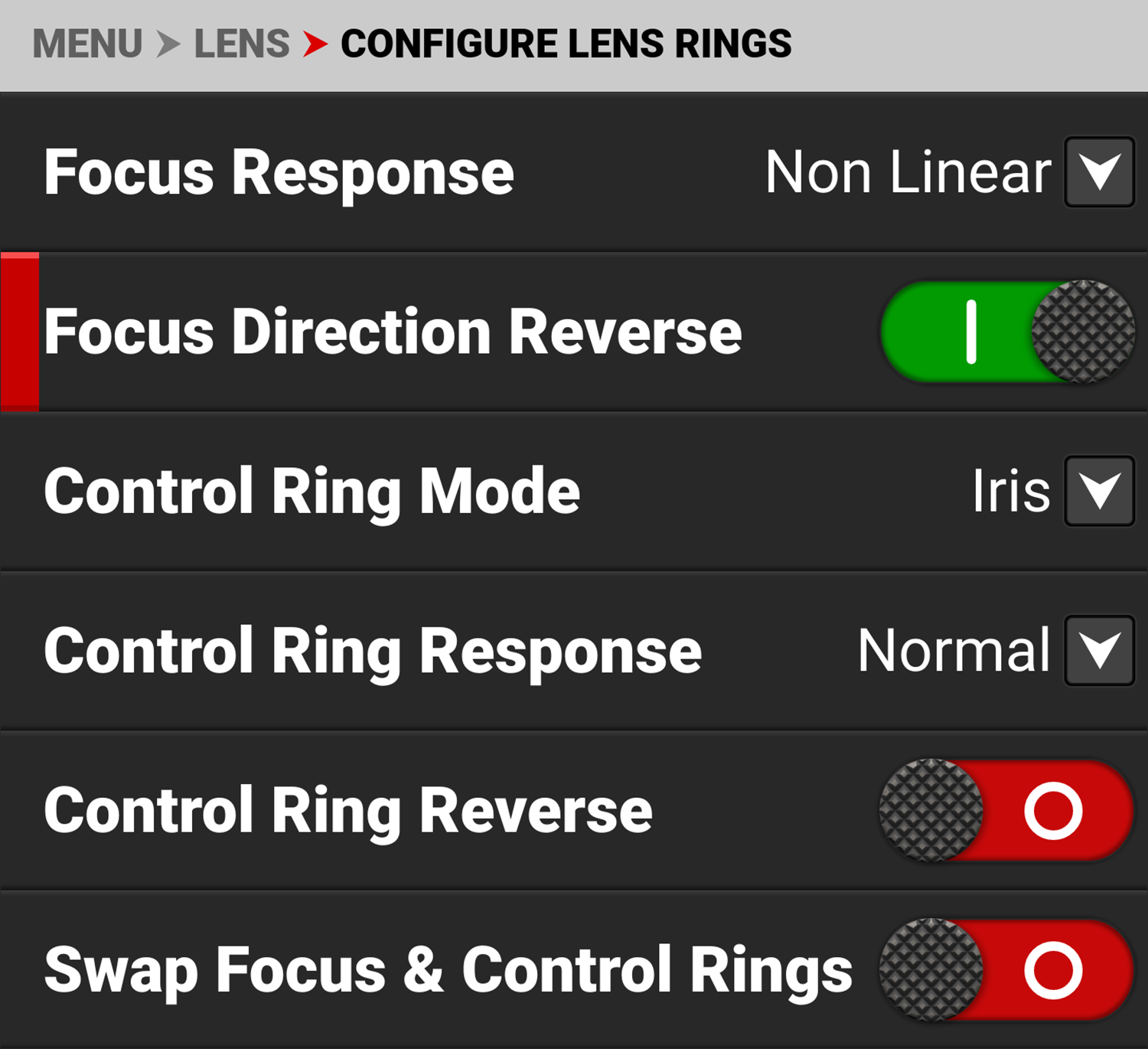
Focus Direction Reverse is enabled by default to allow the Z Mount lens to rotate in the standard cinema direction on initial attachment.
Control Ring Mode
Use Control Ring Mode to select the feature you want to adjust using the Z Mount lens control ring.
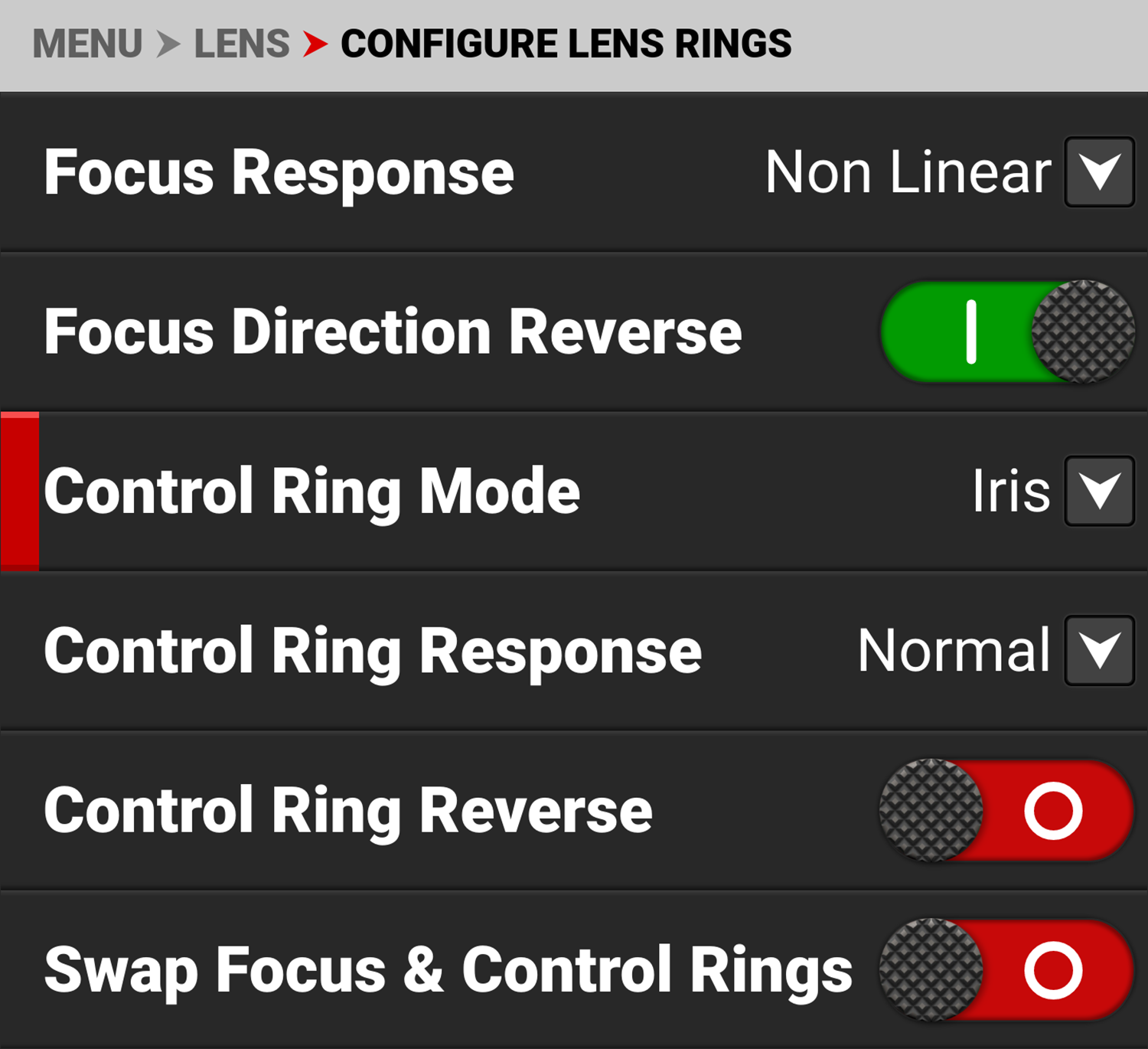
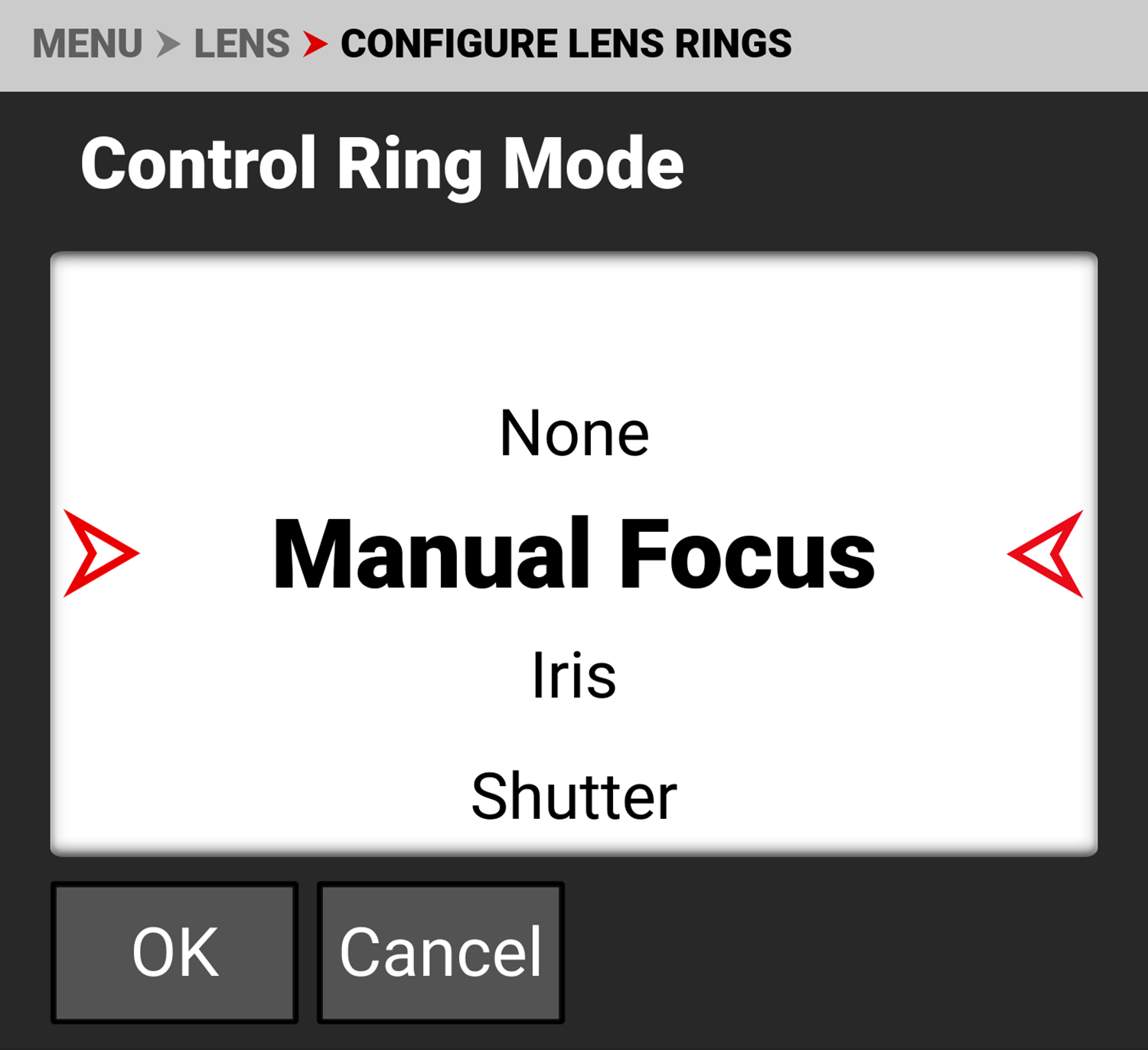
Only lenses which do not have a dedicated Manual Focus ring can have their Control Ring set to Manual Focus.
For lenses that have both a Manual Focus ring and Control Ring, the Control Ring setting defaults to Iris.
The modes you can select include None, Manual Focus, Iris, Shutter, ISO, White Balance, FN UP/DOWN, LCDs Magnify, SDI Magnify, LCDs + SDI Magnify, False Color Cycle, Peaking Cycle, and Tools Cycle.
Control Ring Response
Use Control Ring Response to select the response speed used when the Control Ring is turned.
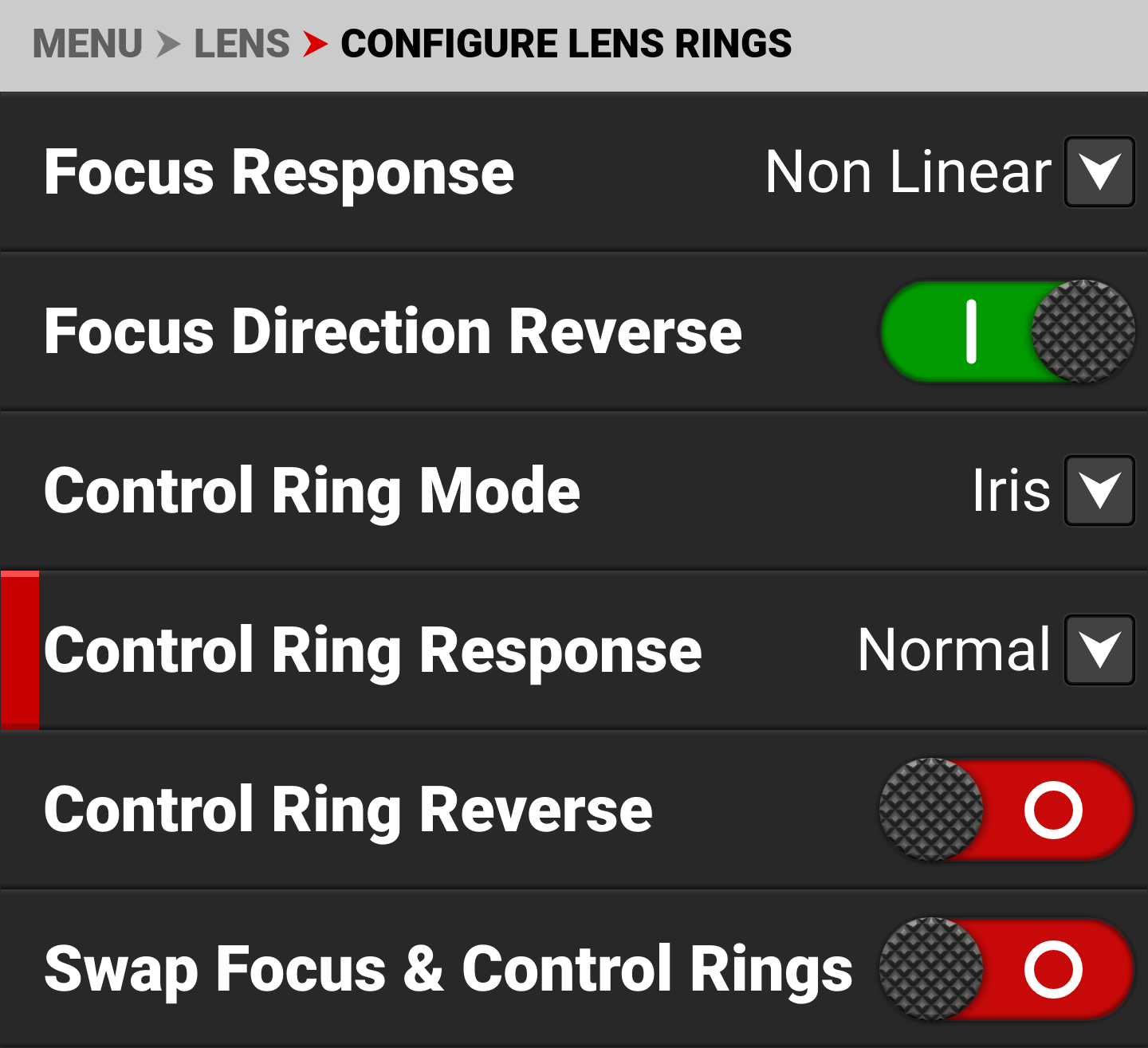
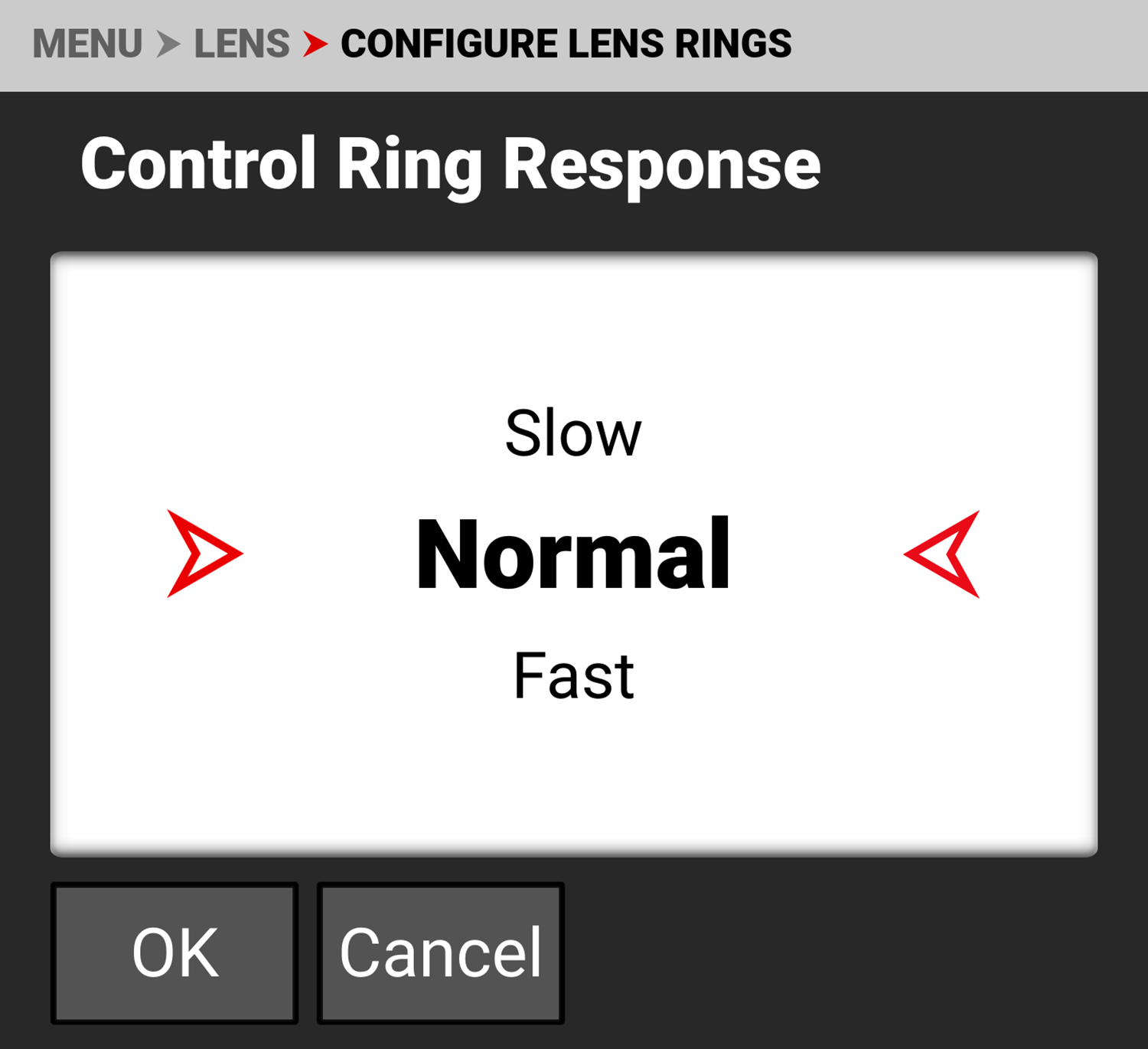
The response speeds you can select include Slow, Normal (default), and Fast.
Control Ring Reverse
Use Control Ring Reverse to enable or disable reversing the Z Mount Control Ring direction.
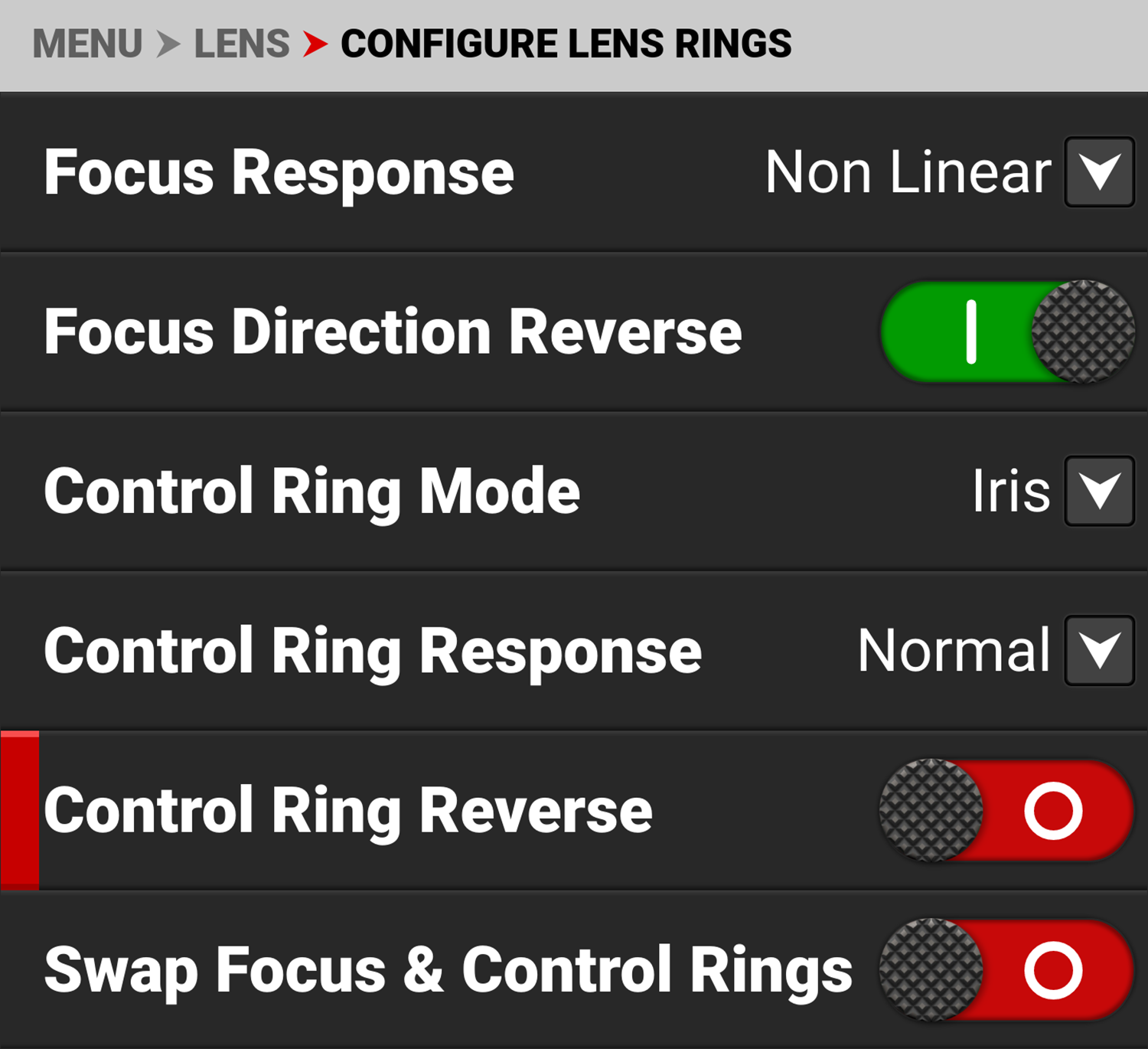
Swap Focus and Control Rings
Use Swap Focus and Control Ring to swap the Focus Ring with the Control Ring on a two ring Z Mount lens.
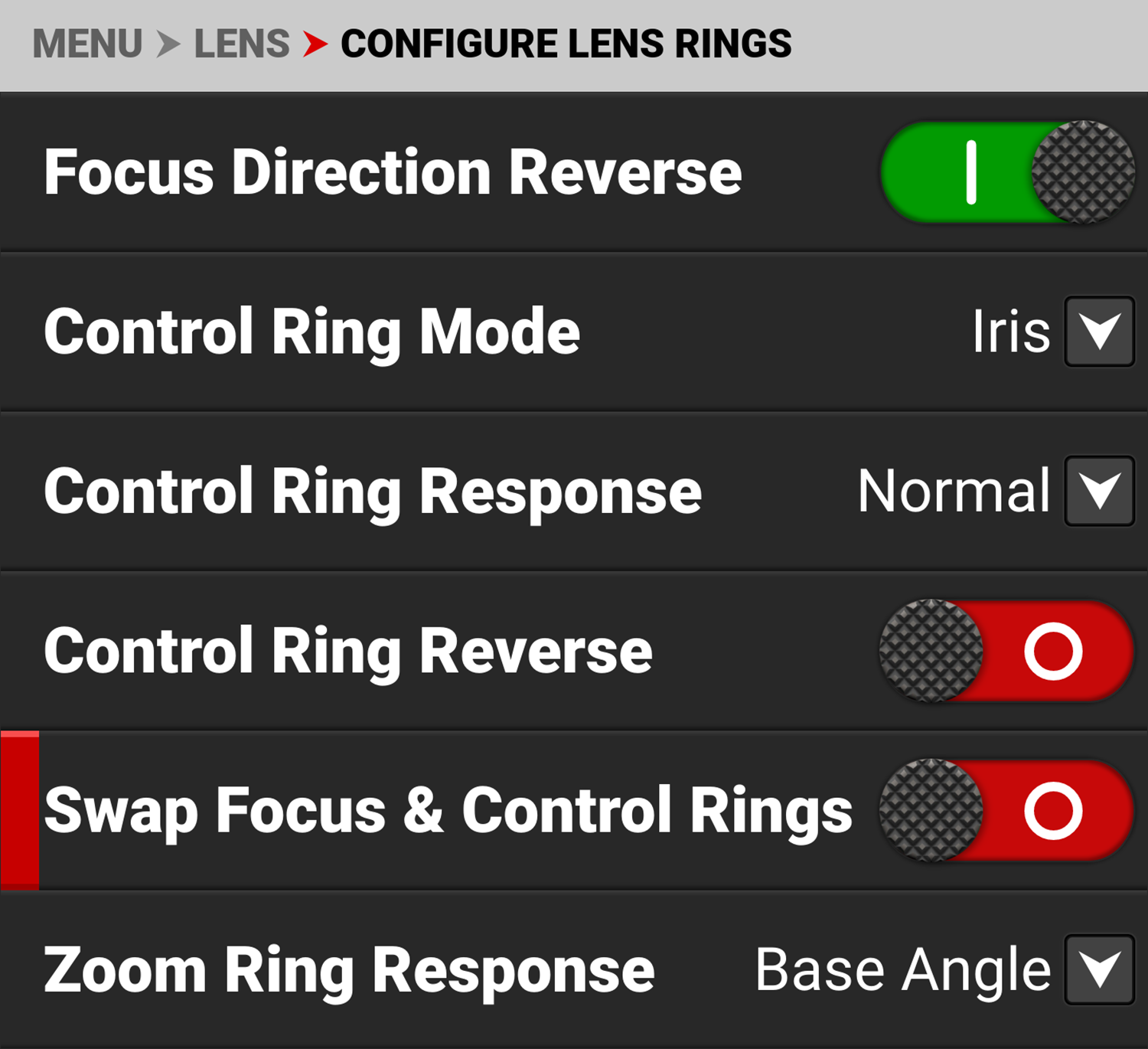
Zoom Ring Response
Use Zoom Ring Response to select how turning the Zoom Ring changes the zoom. Base Angle response is the default rotation response based on the lens’ range. Linear responses (30˚-720˚) express how many degrees of rotation are required to move the focus distance from the minimum to the maximum, and does not rely on speed.
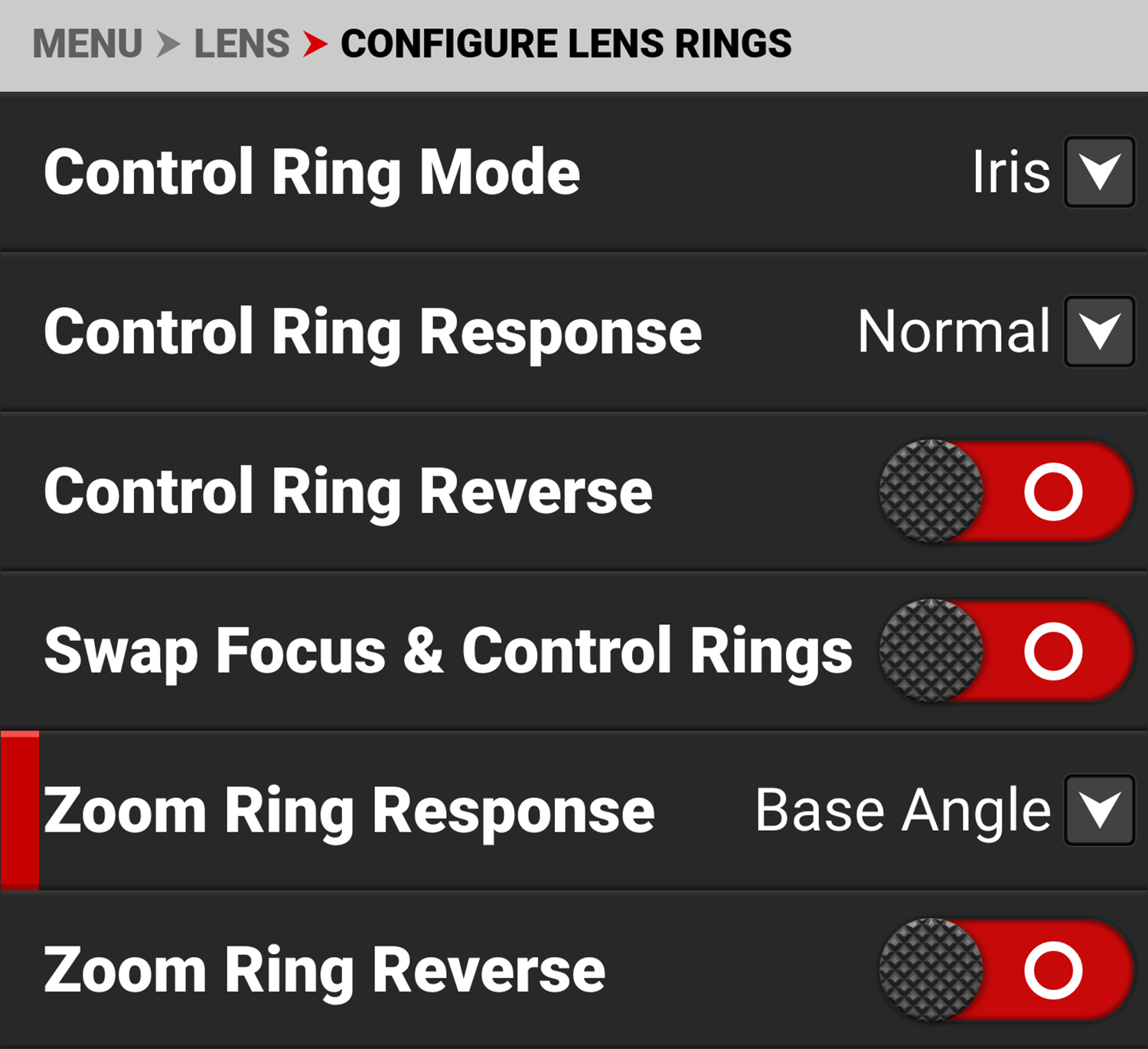
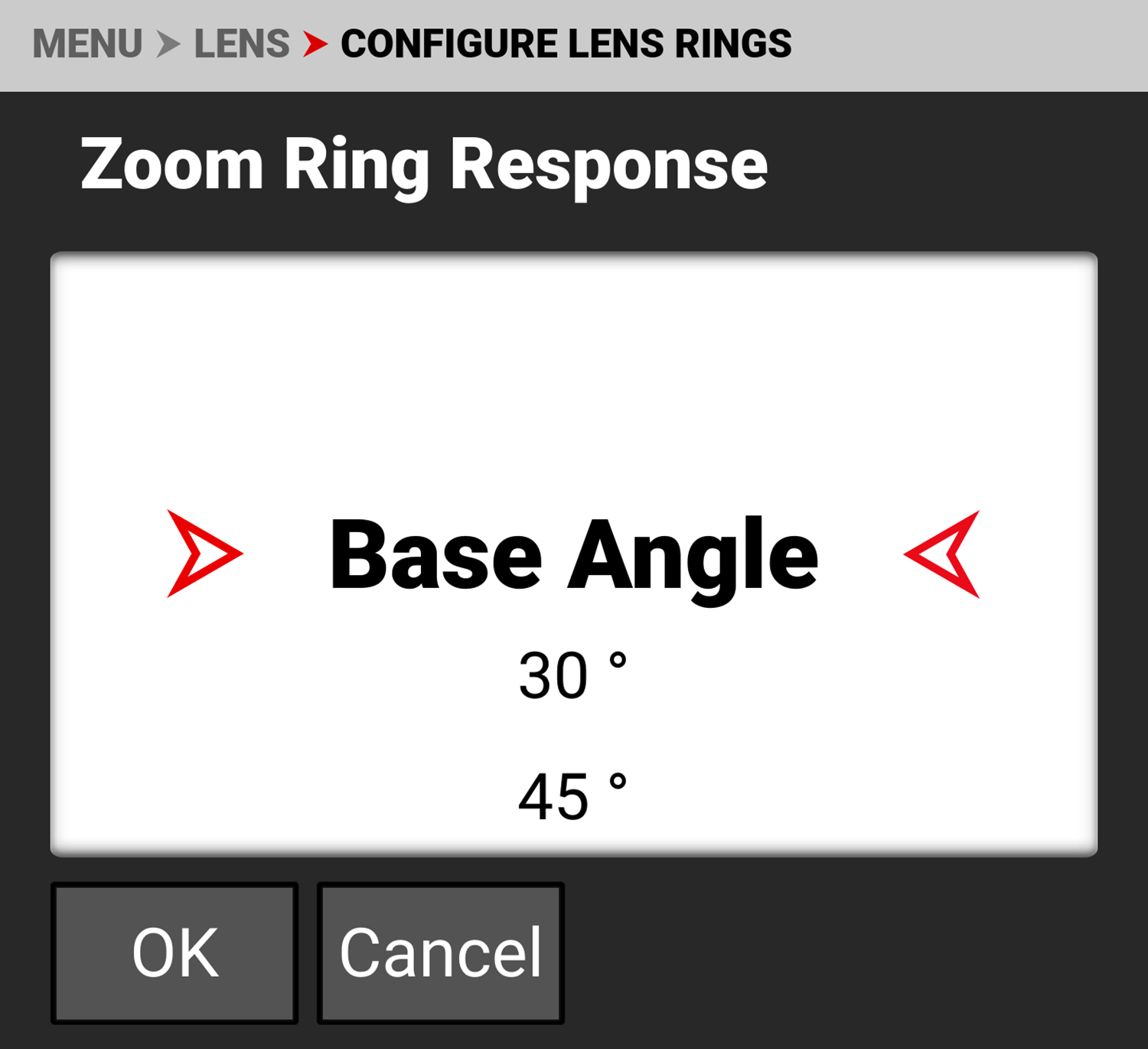
The Zoom Ring response settings you can select include Base Angle (default), 30°, 45°, 60°, 75°, 90°, 120°, 150°, 180°, 210°, 240°, 270°, 330°, 360°, 540°, and 720°.
Zoom Ring Reverse
Use Zoom Ring Reverse to enable or disable reversing of the Z Mount lens Power Zoom Ring direction.
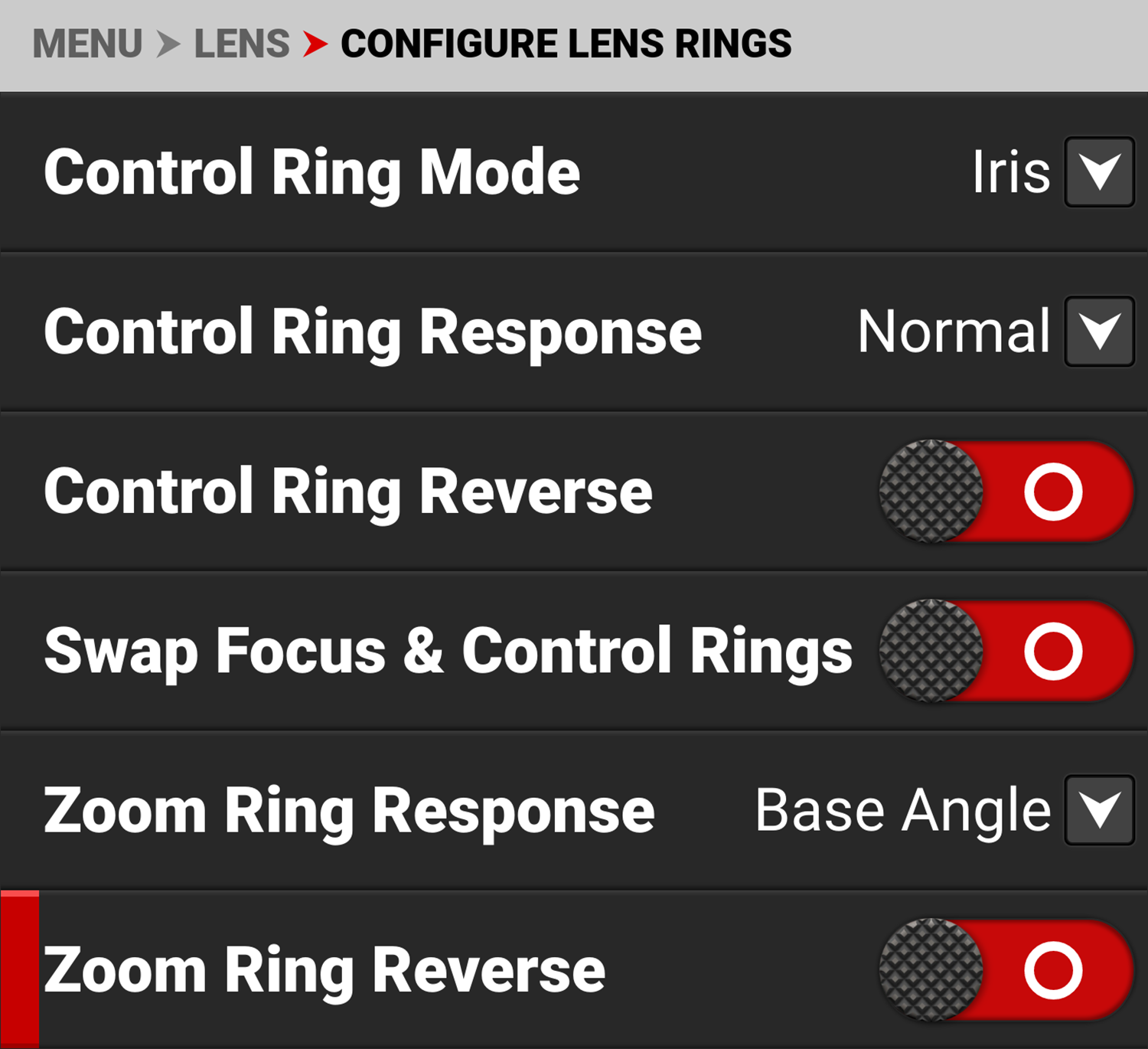
Configure Lens Buttons
Use Configure Lens Buttons to assign the Z Mount lens button features.
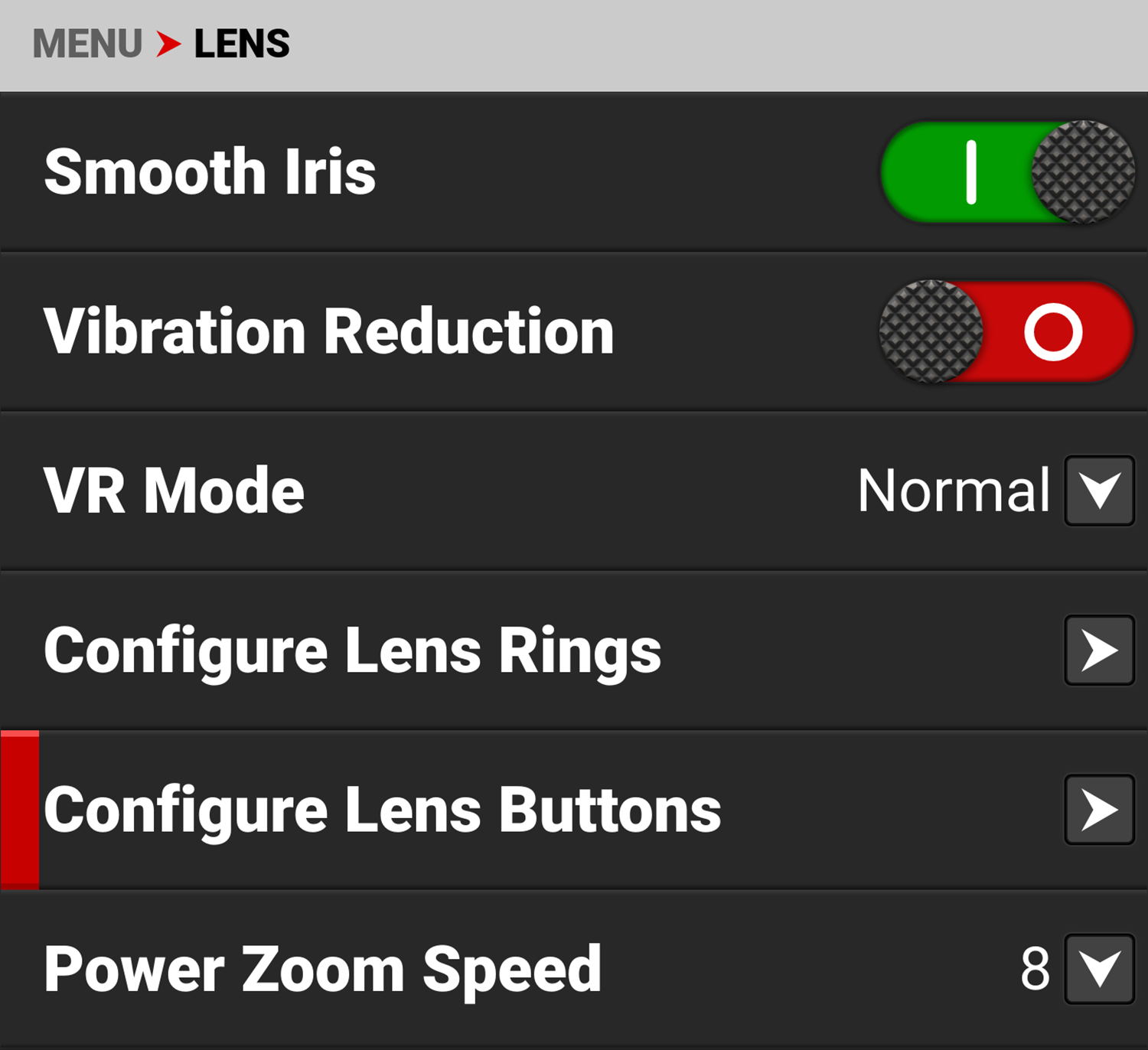
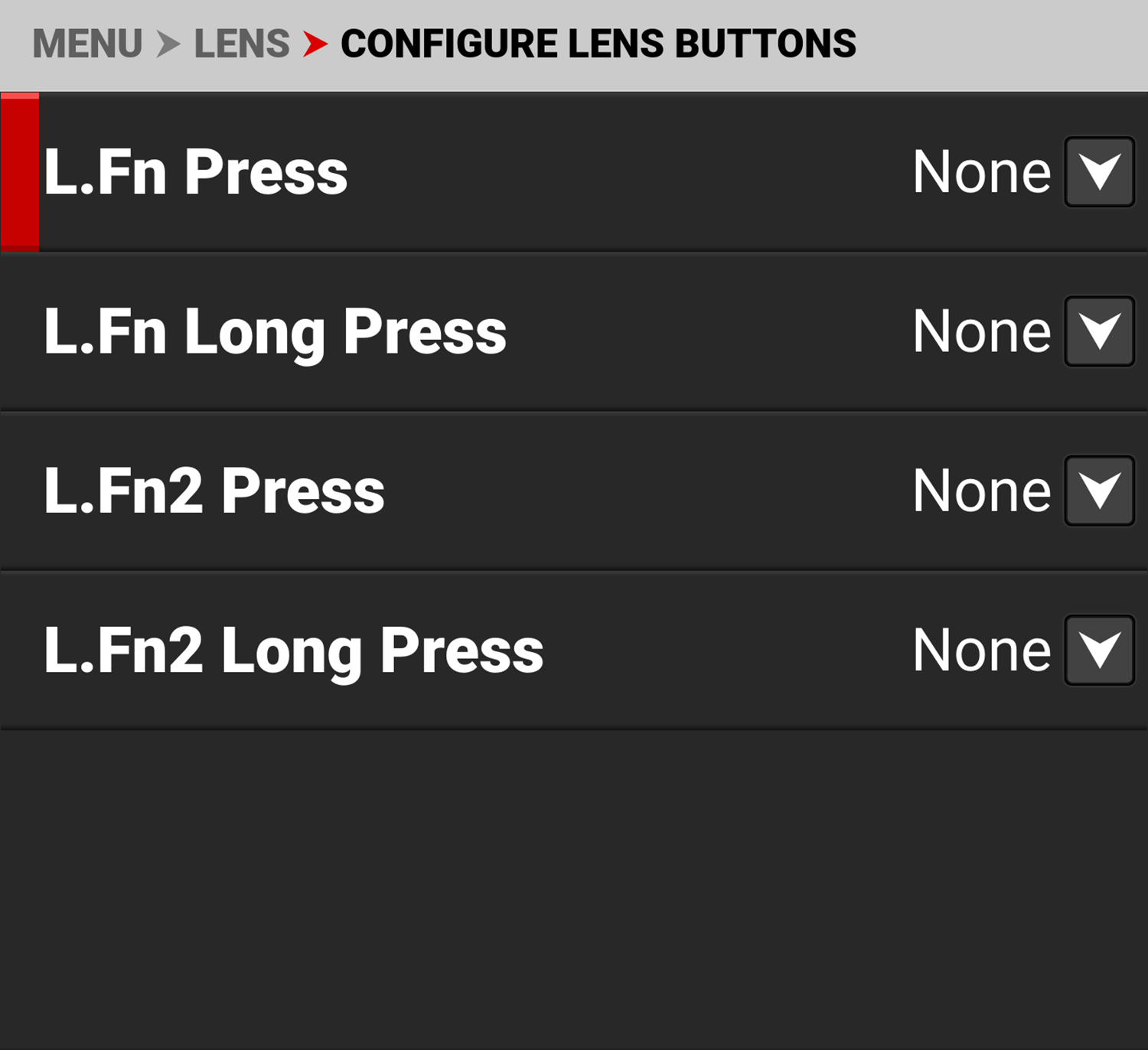
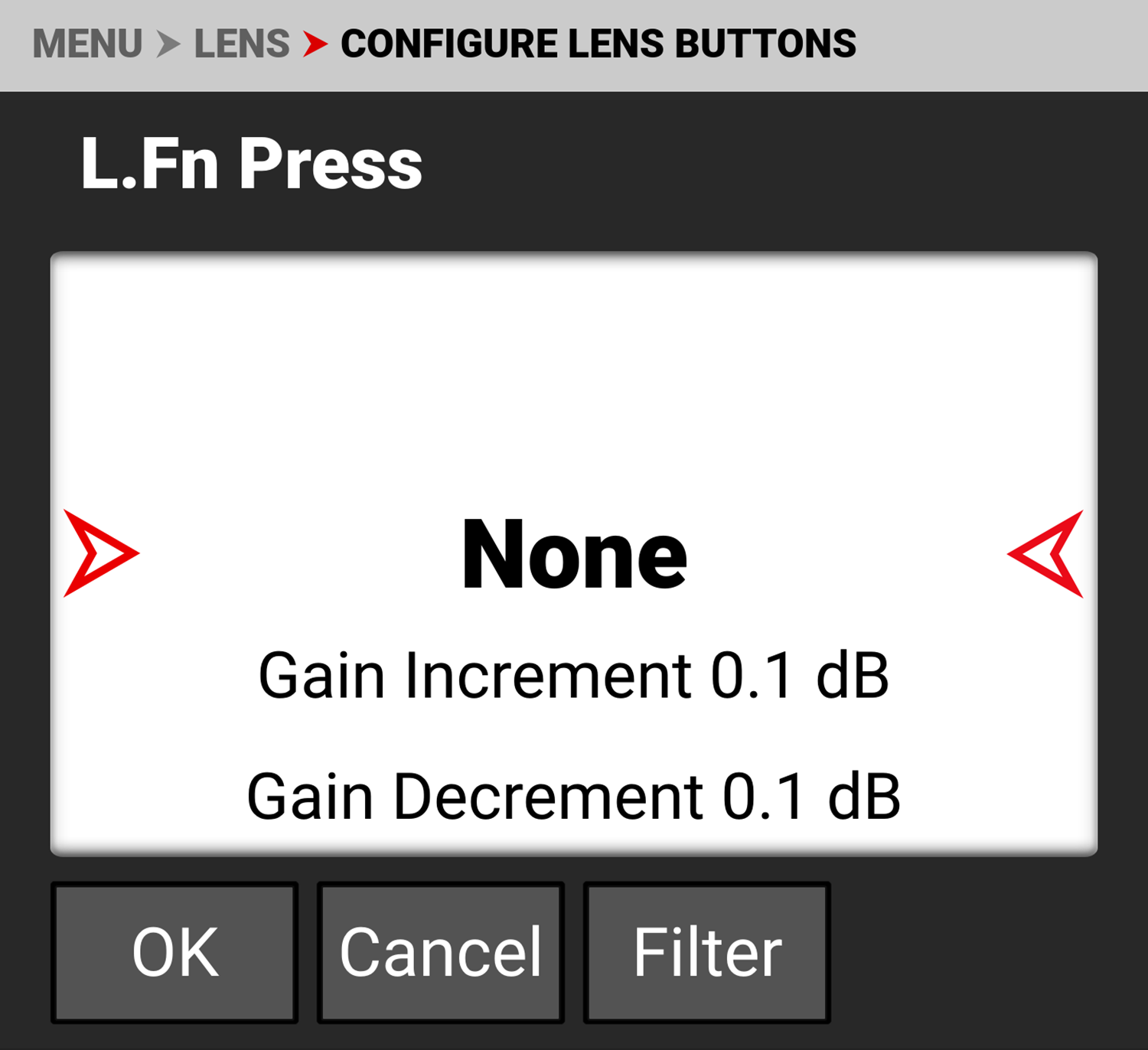
The default setting is None. When you assign functions to the Press position, depending on the function, the Long Press position may be disabled.
For more information, refer to User Assignable Function List.
